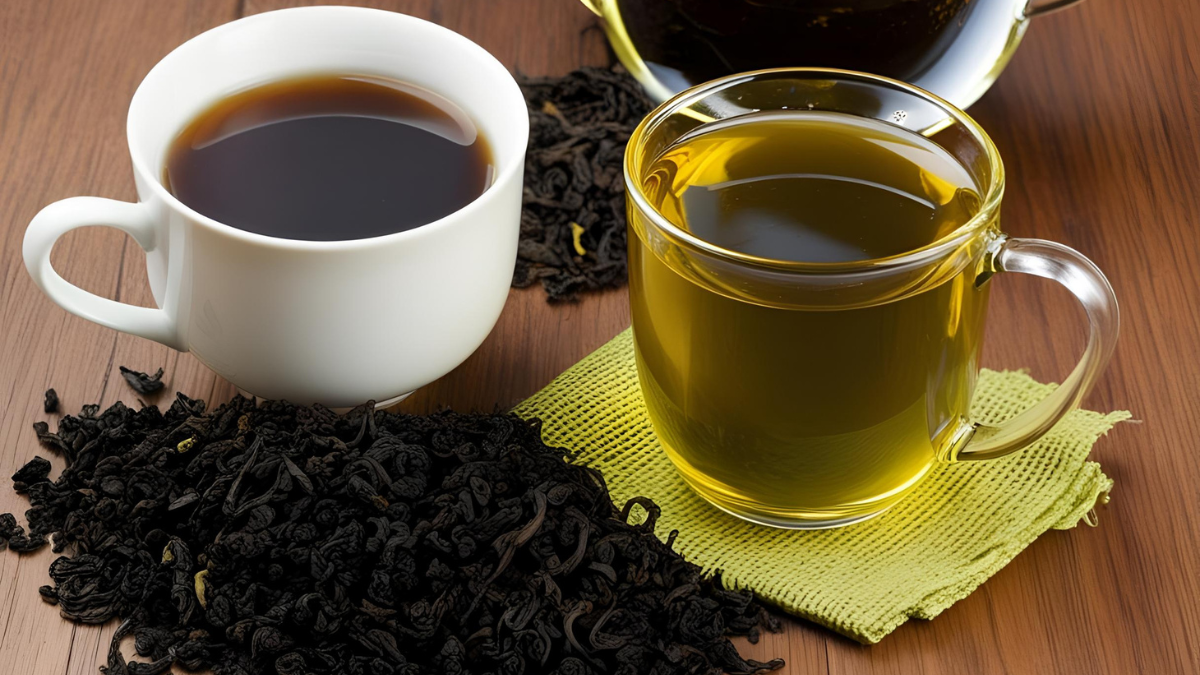
Black tea or green tea: find out which is better for your health
In the vast universe of infusions, black tea and green tea stand out as true titans. Both come from the same ancient plant, Camellia sinensis , but their production process transforms their chemistry, flavor, and effects on the human body. This distinction has generated growing curiosity: which of the two is better for our health?
Below, we’ll explore in depth the properties, differences, scientific benefits, and side effects of each, so you can make the best choice for your well-being.
Origin and processing: the starting point
The common thread is clear: black tea and green tea come from the same plant , but their journey from the harvest to your cup makes all the difference.
-
Black tea : After harvesting, the leaves are allowed to fully oxidize , which intensifies their flavor and darkens their color. This process creates unique compounds called theaflavins and thearubigins , which are responsible for their robust aroma and deep color.
-
Green tea : Oxidation is halted by applying heat (through steaming or roasting) shortly after harvesting. This preserves its green hue and delicate antioxidant compounds like EGCG (epigallocatechin gallate) , which is associated with multiple health benefits.
Key antioxidants: a fight at the summit
Both varieties of tea are potent sources of flavonoids , antioxidant compounds that help fight free radicals and prevent cellular aging.
Green tea: the EGCG champion
EGCG is one of the most studied antioxidants in science. Studies suggest that :
-
Reduces inflammation .
-
It may reduce the risk of certain types of cancer .
-
Helps improve brain function and cardiovascular health.
-
It plays an important role in reducing body fat , especially in combination with exercise.
Black tea: the power of theaflavins
During oxidation, black tea develops theaflavins and thearubigins , which:
-
They have anti-inflammatory properties .
-
They help reduce LDL cholesterol .
-
They contribute to improving arterial health and blood circulation .
Caffeine content: a nuanced boost
One of the main differences between the two teas is their caffeine content:
-
Black tea : Provides between 40 and 70 mg of caffeine per cup , offering a more pronounced energy boost. Ideal for mornings or as an alternative to coffee.
-
Green tea : contains between 20 and 45 mg per cup , providing a milder and more sustained effect .
Both teas contain L-theanine , an amino acid that modulates the effects of caffeine , generating a feeling of calm alertness and concentration without the anxiety associated with coffee.
Scientifically proven benefits
Scientific literature supports multiple benefits of regular consumption of both black and green tea.
Studies on black tea
-
A study published in The Lancet revealed that two or more cups of black tea a day reduce the risk of cardiovascular disease .
-
Theaflavins may help improve insulin sensitivity , which could benefit people with prediabetes or type 2 diabetes.
Studies on green tea
-
Research in Asia, where green tea is a staple, has shown a lower risk of high blood pressure .
-
A meta-analysis published in The American Journal of Clinical Nutrition associated its consumption with healthier aging and less cognitive decline .
-
It has also been linked to improvements in dental health , thanks to its antimicrobial properties.
Which is better for weight loss?
While both teas may support weight loss , green tea has a slight advantage:
-
The EGCG and caffeine in green tea accelerate metabolism and promote fat oxidation.
-
Green tea has been shown to improve exercise efficiency and fatty acid mobilization.
Black tea, for its part, can help control appetite and keep blood sugar levels stable.
Side effects and precautions
Despite their benefits, it’s important to consume both in moderation. Excess can cause:
-
Nervousness, insomnia, or palpitations in people sensitive to caffeine.
-
Stomach problems if taken on an empty stomach.
-
Interactions with anticoagulant, antihypertensive and antidepressant medications.
-
Dental stains , especially with black tea.
It is recommended to limit consumption to no more than 3 or 4 cups per day and consult a doctor if you are under medical treatment.
Conclusion: Green tea or black tea? It’s your choice.
Both teas offer an impressive array of health benefits . The choice between black tea and green tea depends on your personal goals and preferences:
-
Looking for energy and intense flavor? Choose black tea.
-
Prefer something milder and focused on specific antioxidants? Opt for green tea.
The most important thing is to integrate them into your daily routine , accompanying a balanced diet and an active lifestyle.






